Courses and Events
Scroll down to find Ammerdown courses, events and zooms for 2025, 2026 and 2027!
New courses will be added throughout the year, so keep an eye on this page.
Check out this link to our Ammerdown Programme for events in 2026!
Request an Ammerdown Programme by post here.
All
November

Bold Hope: Advent Justice
25 Nov 2025 - 23 Dec 2025 19:00 - 20:00
Course Leader: Rupert Kaye
Course Date: Tuesdays 25 Nov and 2, 9, 16, 23 December
Course Options: FREE ZOOM
Course Timings: 7pm-8pm
Course Code: Z0125
December

Wreath Making Workshop
09 Dec 2025 10:00 - 13:00
Course Leader: Amy Pike
Course Date: Tuesday 9 December
Course Options: £45 Special Offer - Pay only £35 if you book before 1st December!
Course Timings: 10am-1pm
Course Code: D1625

Wreath Making Workshop
11 Dec 2025 14:00 - 17:00
Course Leader: Amy Pike
Course Date: Thursday 11 December
Course Options: £45 Special Offer - Pay only £35 if you book before 1st December!
Course Timings: 2pm-5pm
Course Code: D1725

Santas Grotto 1pm
13 Dec 2025 13:00 - 13:15
Join Santa in a magical group story time in our enchanting grotto.
Each 15 minute session includes a story, gift, personalised letter and photo opportunity.
1pm-1.15pm Slot

Santas Grotto 1:20pm
13 Dec 2025 13:20 - 13:35
Join Santa in a magical group story time in our enchanting grotto.
Each 15 minute session includes a story, gift, personalised letter and photo opportunity.
1:20pm-1.35pm Slot

Santas Grotto 2:20pm
13 Dec 2025 14:20 - 14:35
Join Santa in a magical group story time in our enchanting grotto.
Each 15 minute session includes a story, gift, personalised letter and photo opportunity.
2:20pm-2.35pm Slot

Santas Grotto 2:40pm
13 Dec 2025 14:40 - 14:55
Join Santa in a magical group story time in our enchanting grotto.
Each 15 minute session includes a story, gift, personalised letter and photo opportunity.
2:40pm-2.55pm Slot

Santas Grotto 3pm
13 Dec 2025 15:00 - 15:15
Join Santa in a magical group story time in our enchanting grotto.
Each 15 minute session includes a story, gift, personalised letter and photo opportunity.
3pm-3.15pm Slot

Santas Grotto 3:20pm
13 Dec 2025 15:20 - 15:35
Join Santa in a magical group story time in our enchanting grotto.
Each 15 minute session includes a story, gift, personalised letter and photo opportunity.
3:20pm-3.35pm Slot

Santas Grotto 3:40pm
13 Dec 2025 15:40 - 15:55
Join Santa in a magical group story time in our enchanting grotto.
Each 15 minute session includes a story, gift, personalised letter and photo opportunity.
3:40pm-3.55pm Slot

Santas Grotto 2pm
13 Dec 2025 14:00 - 14:15
Join Santa in a magical group story time in our enchanting grotto.
Each 15 minute session includes a story, gift, personalised letter and photo opportunity.
2pm-2.15pm Slot

Santas Grotto 1:40pm
13 Dec 2025 13:40 - 13:55
Join Santa in a magical group story time in our enchanting grotto.
Each 15 minute session includes a story, gift, personalised letter and photo opportunity.
1:40pm-1.55pm Slot

Trevett Stall Booking
13 Dec 2025 13:00 - 16:00
If you are interested in having a stall at our Christmas Market in the Trevett conference room then please email tina.patterson@ammerdown.org .

John Todd Stall Booking
13 Dec 2025 13:00 - 16:00
If you are interested in having a stall at our Christmas Market in the John Todd, our first conference room then please email tina.patterson@ammerdown.org .

Christmas Family Fun Day 2025
13 Dec 2025 13:00 - 16:00
Course Leader: The Ammerdown Centre
Course Date: Saturday 13 December
Course Timings: 1pm-4pm

Ammerdown Festive Baking Competition 2025
13 Dec 2025 13: - 15:
Ammerdown Festive Baking Competition 2025
Saturday 13th December
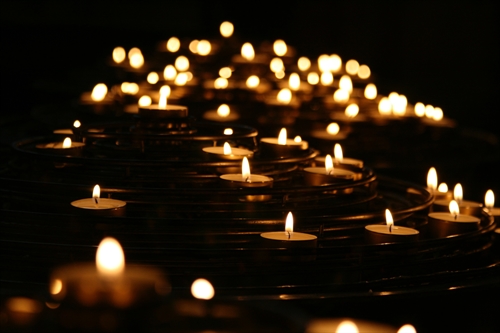
Carols by Candlelight
16 Dec 2025 19:00 - 20:00
7–8pm
Free Entry
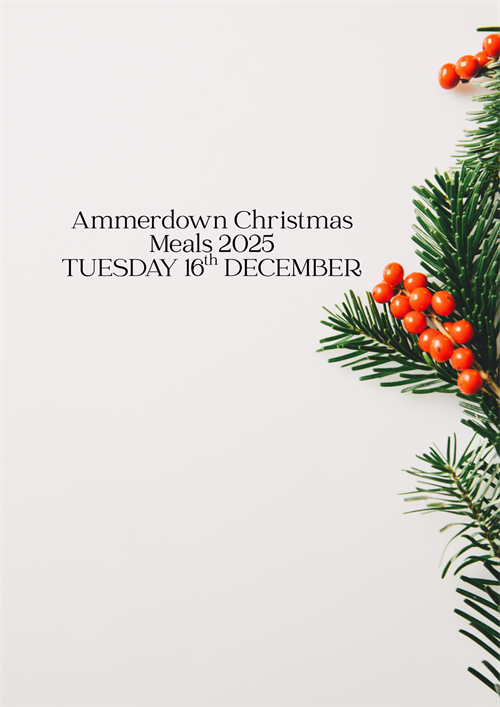
Ammerdown Christmas Meal Tuesday 16th December
16 Dec 2025 - 20 Dec 2025 12:00
Join us at Ammerdown this festive season!
Lunchtime Christmas Meal
Tuesday 16th

TLC Day for the Retired
18 Dec 2025 10:00 - 14:00
Course Leader: The Ammerdown Centre
Course Date: Thursday 18 December
Course Options: TBC
Course Timings: 10am-2pm
Course Code: TLC1125

Ammerdown Christmas Meal Thursday 18th December
18 Dec 2025 12:00
Join us at Ammerdown this festive season!
Lunchtime Christmas Meal
Thursday 18th

Ammerdown Christmas Meal Friday 19th December
19 Dec 2025 12:00
Join us at Ammerdown this festive season!
Lunchtime Christmas Meal
Friday 19th

Ammerdown Christmas Meal Saturday 20 December
20 Dec 2025 12:00
Join us at Ammerdown this festive season!
Lunchtime Christmas Meal
Saturday 20th December

Epiphany Retreat
05 Jan 2026 09:30 - 16:00
Course Leader: Rev Narinder Tegally
Course Date: Monday 5 January
Course Options: Full Price - £70.00 Early Bird £65.00 (EB Deadline: 05/12/25)
Course Timings: 9:30am for 10am - 4pm
Course Code: D0126

Soul of Leadership - January Residential
05 Jan 2026 - 08 Jan 2026 11:00 - 14:00
Grounded in Spirit: contemplative leadership for the 21st Century
The first residential considers the structures and processes of 21st-century decision-making (both individual and corporate) and explores how discernment practices can be integrated into decision-making. Insights from the fields of spirituality, management, and leadership studies will be combined to examine decision-making and discernment in various settings.
Click here for more information about Soul of Leadership.
For an application form and a tuition assistance form, if required, please email admin@ammerdown.org

The Hope of Nonviolence Online introductory session
21 Jan 2026 18:30 - 20:30
Course Leader: Carolyn Merry & Martina Hunt
Course Date: Wednesday 21 January
Course Options: Online introductory session - £15
Course Timings: 6:30pm-8:30pm
Course Code: D0226

TLC for the Retired
22 Jan 2026 10:00 - 14:00
Course Leader: The Ammerdown Centre
Course Date: Thursday 22 January
Course Options: £20
Course Timings: 10am-2pm
Course Code: TLC0126

Kintsugi Day
31 Jan 2026 09:30 - 16:00
Course Leader: Caroline Hudson
Course Date: Saturday 31 January
Course Options: Full Price - £110 Early Bird - £99 (EB Deadline 31/12/2025)
Course Timings: 9:30am for 10am - 4pm
Course Code: D0326
February

Strong in Love, Peaceful and Restful
02 Feb 2026 - 04 Feb 2026 18:00 - 14:00
Course Leader: Ian and Gail Adams
Course Date: Monday 2 - Wednesday 4 February
Course Options:
Residential - £399 Non Residential - £272
Early Bird:
Residential - £379 Non Residential - £258 (EB Deadline: 02/11/25)
Course Timings: Course starts at 6pm, ends after lunch.
Course Code: R0426

Spirit of the Inca East Module Accommodation 6-11 February
06 Feb 2026 - 11 Feb 2026 10:00 - 16:00
Accommodation for bookings prearranged with Spirit of the Inca.

New Year Offer - Two Night Private Stay or Retreat
06 Feb 2026 - 08 Feb 2026
New Year Offer
20% OFF
Two Night Private Stay or Retreat
Friday 6 - Sunday 8 February
Single Full board was £236 now only £189
(Single person in either a single, double or twin room depending on availability)

Refreshing Day for Carers
10 Feb 2026 10:00 - 15:00
Course Leader: The Ammerdown Centre
Course Date: Tuesday 10 February
Course Options: £20
Course Timings: 10am - 3pm
Course Code: C0126
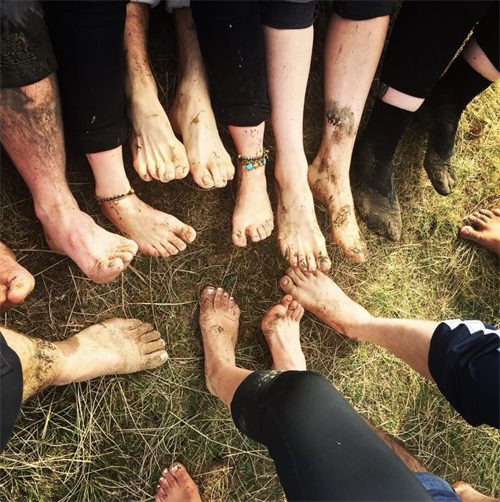
Justice by Investing in Local Community Leaders & Assets Workshop
14 Feb 2026 09:30 - 16:00
Course Leader: Rev Ash Barker & Tim Evans
Course Date: Saturday 14 February
Course Options: Full Price - £70 Early Bird - £65 (EB Deadline 14/01/2026)
Course Timings: 9:30am for 10am - 4pm
Course Code: D0426

Illness, Injury and Remedies in Jane Austen's Novels
14 Feb 2026 - 17 Feb 2026 12:00 - 14:00
Course Leader: Danielle Grover
Course Date: Saturday 14 - Tuesday 17 February
Course Options:
Residential - £599 Non Residential - £388
Early Bird:
Residential - £569 Non Residential - £368 (EB Deadline: 14/11/25)
Course Timings: Course starts and ends with lunch.
Course Code: R0526

TLC for the Retired
19 Feb 2026 10:00 - 14:00
Course Leader: The Ammerdown Centre
Course Date: Thursday 19 February
Course Options: £20
Course Timings: 10am-2pm
Course Code: TLC0226
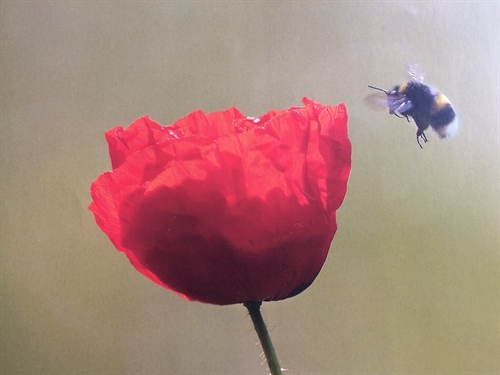
Extraordinary Women - Etty Hillesum
28 Feb 2026
Course Leader: Sue Glanville
Course Date: Saturday 28 February
Course Options: Full Price - £70.00 Early Bird £65.00 (EB Deadline: 28/01/26 )
Course Timings: 9:30am for 10am - 4pm
Course Code: D0526
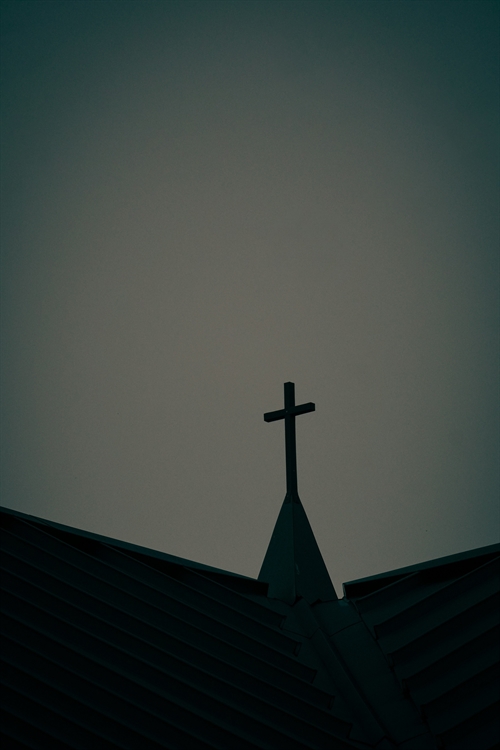
Lenten Quiet Day
28 Feb 2026 09:30 - 16:00
Course Leader: Rev Narinder Tegally
Course Date: Saturday 28 February
Course Options: Full Price - £70.00 Early Bird £65.00 (EB Deadline: 28/01/26)
Course Timings: 9:30am for 10am - 4pm
Course Code: D0626
March
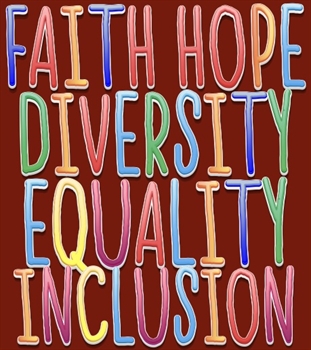
Faith, Hope and DEI
02 Mar 2026 - 04 Mar 2026 18:00 - 14:00
Course Leader: Dave Tomlinson
Course Date: Monday 2 - Wednesday 4 March
Course Options:
Residential - £395 Non Residential - £254
Early Bird:
Residential - £375 Non Residential - £241 (EB Deadline 02/11/2025)
Course Timings: Course starts at 6pm, ends after lunch.
Course Code: R0626

The Hope of Nonviolence Online Introductory session
11 Mar 2026 18:30 - 20:30
Course Leader: Carolyn Merry & Martina Hunt
Course Date: Wednesday 11 March
Course Options: Online Introductory Session - £15
Course Timings: 6:30pm - 8:30pm
Course Code: D0726
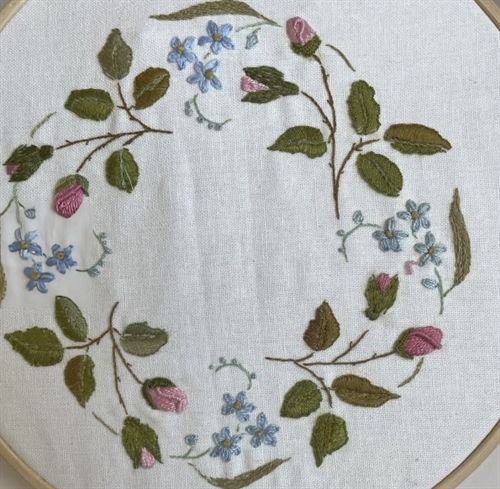
Hoop Embroidery
23 Mar 2026 - 26 Mar 2026 14:00 - 14:00
Course Leader: Annette Bolton
Course Date: Monday 23 - Thursday 26 March
Course Options:
Residential - £586 Non Residential - £374
Early Bird:
Residential - £556 Non Residential - £355 (EB Deadline 23/12/25)
Course Timings: Course starts at 2pm, ends after lunch
Course Code: R0126

TLC for the Retired
26 Mar 2026 10:00 - 14:00
Course Leader: The Ammerdown Centre
Course Date: Thursday 26 March
Course Options: £20
Course Timings: 10am-2pm
Course Code: TLC0326
April
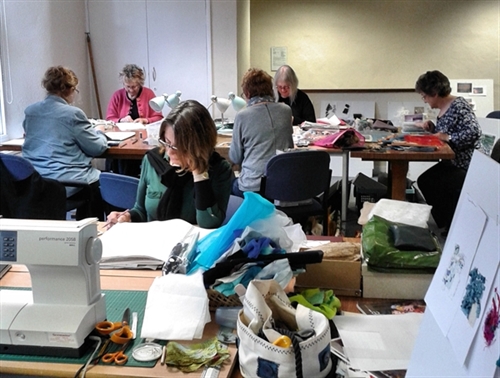
Stitched Textiles
10 Apr 2026 - 12 Apr 2026 16:30 - 14:00
Course Leader: Siân Martin
Course Date: Friday 10 - Sunday 12 April
Course Options:
Residential - £395 Non Residential - £254
Early Bird:
Residential - £375 Non Residential - £241 (EB Deadline: 10/01/26)
Course Timings: Course starts 4:30pm, ends after lunch.
Course Code: R0726
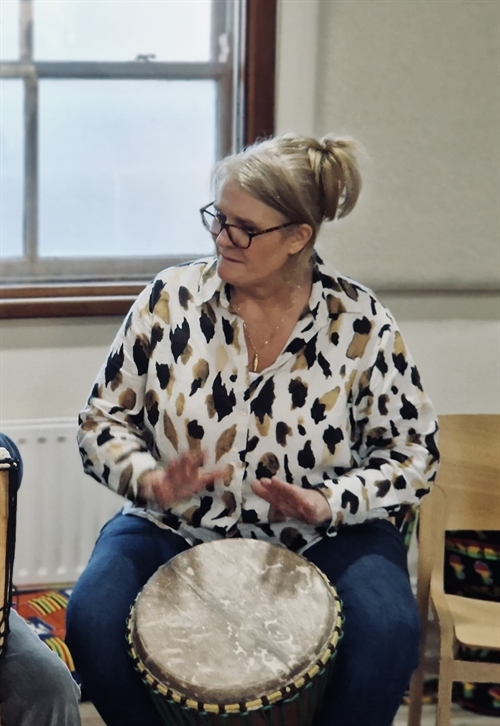
Drumming for Wellness
17 Apr 2026 09:30 - 16:00
Course Leader: Jo Coomber
Course Date: Friday 17 April
Course Options: Full Price - £70.00 Early Bird £65.00 (EB Deadline:17/03/26 )
Course Timings: 9:30am for 10am - 4pm
Course Code: D0926

Spirit of the Inca South Module Accommodation 17-22 April
17 Apr 2026 - 22 Apr 2026 10:00 - 16:00
Accommodation for bookings prearranged with Spirit of the Inca.

Peace, Flowers & Spring Retreat Day
18 Apr 2026 09:30 - 16:30
Course Leader: Martina Hunt
Course Date: Saturday 18 April
Course Options: Full Price - £82.00 Early Bird £77.00 (EB Deadline: 18/03/26 )
Course Timings: 9:30am for 10am - 4:30pm
Course Code: D0826

Refreshing Day for Carers
21 Apr 2026 10:00 - 15:00
Course Leader: The Ammerdown Centre
Course Date: Tuesday 21 April
Course Options: £20
Course Timings: 10am - 3pm
Course Code: C0226

TLC for the Retired
23 Apr 2026 10:00 - 14:00
Course Leader: The Ammerdown Centre
Course Date: Thursday 23 April
Course Options: £20
Course Timings: 10am-2pm
Course Code: TLC0426
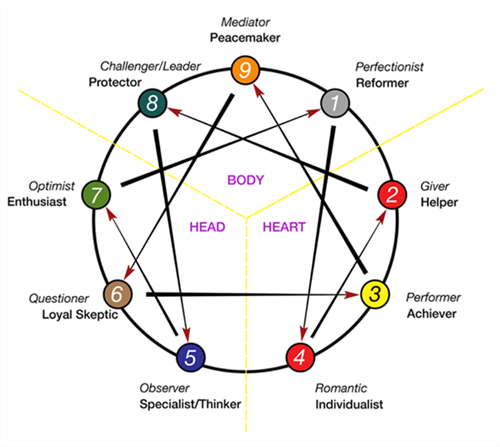
Introduction to the Enneagram
27 Apr 2026 - 29 Apr 2026 18:00 - 15:00
Course Leader: Terry Wood
Course Date: Monday 27 - Wednesday 29 April
Course Options:
Residential - £395 Non Residential - £254
Early Bird:
Residential - £375 Non Residential - £241 (EB Deadline 27/01/26)
Course Timings: Course starts at 6pm, ends at 3pm
Course Code: R0826
May
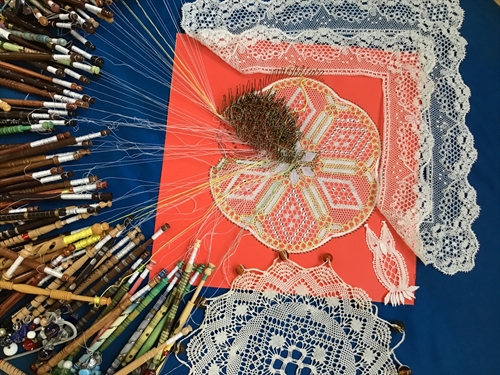
Lace Making
18 May 2026 - 20 May 2026 18:00 - 15:00
Course Leader: Helen Lilley
Course Date: Monday 18 - Wednesday 20 May
Course Options:
Residential - £395 Non Residential - £254
Early Bird:
Residential - £375 Non Residential - £241 (EB Deadline 18/02/2026)
Course Timings: Course starts at 6pm, ends at 3pm
Course Code: R0926

The Hope of Nonviolence Online Introductory Session
20 May 2026 18:30 - 20:30
Course Leader: Carolyn Merry & Martina Hunt
Course Date: Wednesday 20 May
Course Options: Online Introductory Session £15
Course Timings: 6:30pm - 8:30pm
Course Code: D1026

TLC for the Retired
21 May 2026 10:00 - 14:00
Course Leader: The Ammerdown Centre
Course Date: Thursday 21 May
Course Options: £20
Course Timings: 10am-2pm
Course Code: TLC0526
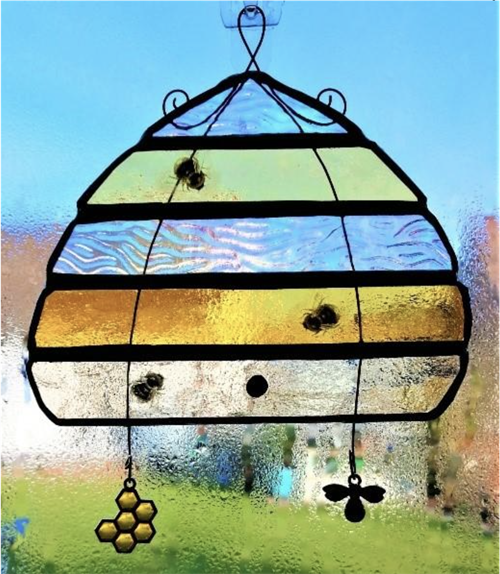
Stained Glass Bees
23 May 2026 09:30 - 16:00
Course Leader: Tracey Quinn
Course Date: Saturday 23 May
Course Options: Full Price - £110 Early Bird £99.00 (EB Deadline: 23/04/2026)
Course Timings: 9:30am for 10am - 4pm
Course Code: D1126
June

Soul of Leadership 4 - Session 2
08 Jun 2026 - 11 Jun 2026 11:00 - 14:00
For prearranged Soul of Leadership bookings only.

TLC for the Retired
11 Jun 2026 10:00 - 14:00
Course Leader: The Ammerdown Centre
Course Date: Thursday 11 June
Course Options: £20
Course Timings: 10am-2pm
Course Code: TLC0626

"Time Out" Quiet Day
27 Jun 2026 09:30 - 16:00
Course Leader: Rev Narinder Tegally and Carolyn Merry
Course Date: Saturday 27 June
Course Options: Full Price - £70.00 Early Bird £65.00 (EB Deadline: 27/05/26 )
Course Timings: 9:30am for 10am - 4pm
Course Code: D1226

Refreshing Day for Carers
30 Jun 2026 10:00 - 15:00
Course Leader: The Ammerdown Centre
Course Date: Tuesday 30 June
Course Options: £20
Course Timings: 10am - 3pm
Course Code: C0326
July

Ammerdown Cream Teas
05 Jul 2026 14:00 - 16:00
Course Leader: The Ammerdown Centre
Course Date: Sunday 5 July
Course Options: £6.50 - Cream Tea, unlimited hot drink. £4.50 - Slice of Cake unlimited hot drink
Course Timings: 2-4pm
Course Code: D1326

Ammerdown Cream Teas
12 Jul 2026 14:00 - 16:00
Course Leader: The Ammerdown Centre
Course Date: Sunday 12 July
Course Options: £6.50 - Cream Tea, unlimited hot drink £4.50 - Slice of Cake unlimited hot drink
Course Timings: 2-4pm
Course Code: D1426
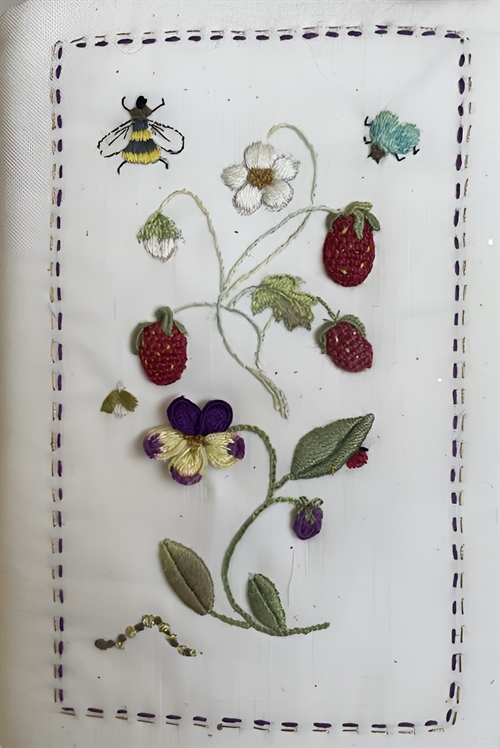
Stumpwork Flowers from an English Garden
13 Jul 2026 - 16 Jul 2026 14:00 - 14:00
Course Leader: Annette Bolton
Course Date: Monday 13 - Thursday 16 July
Course Options:
Residential - £586 Non Residential - £374
Early Bird:
Residential - £556 Non Residential - £355 (EB Deadline 13/04/26)
Course Timings: Course starts at 2pm, ends with lunch
Course Code: R0226
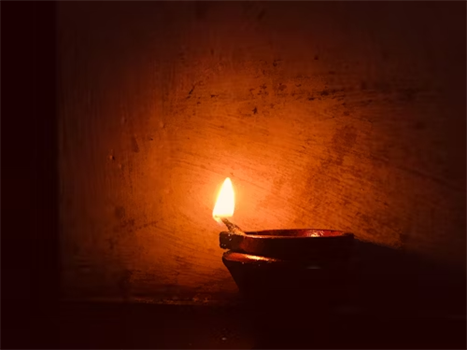
The Hope of Nonviolence Residential Course
13 Jul 2026 - 15 Jul 2026 10:00 - 16:00
Course Leader: Carolyn Merry & Martina Hunt
Course Date: Monday 13 - Wednesday 15 July
Course Options:
Residential - £427 Non Residential - £293
Early Bird:
Residential - £407 Non Residential - £273
(EB Deadline 17/04/26)
Course Timings: Please arrive for 10am, course ends at 4pm
Course Code: R1226
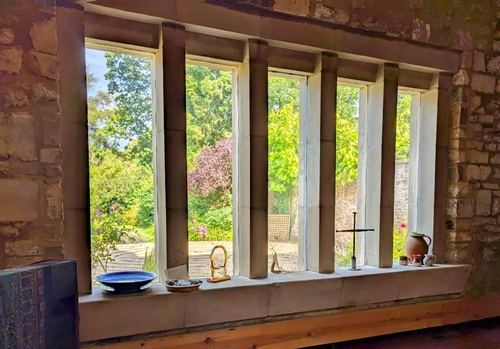
Individually Guided Retreat
13 Jul 2026 - 17 Jul 2026 12:00 - 14:00
Course Leader: Judy Holyer
Course Date: Monday 13 - Friday 17 July
Course Options:
Residential - £845
Early Bird:
Residential - £799 (EB Deadline 13/04/26)
Course Timings: Course starts with and ends after lunch
Course Code: R1026

TLC for the Retired
16 Jul 2026 10:00 - 14:00
Course Leader: The Ammerdown Centre
Course Date: Thursday 16 July
Course Options: £20
Course Timings: 10am-2pm
Course Code: TLC0726
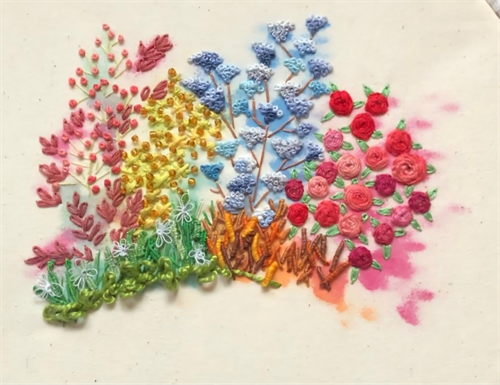
Sew and Sewcialise
16 Jul 2026 - 19 Jul 2026 18:00 - 14:00
Course Leader: Sharon Wilkinson
Course Date: Thursday 16 - Sunday 19 July
Course Options:
Residential - £477 Non Residential - £266
Early Bird:
Residential - £453 Non Residential - £252 (EB Deadline 16/04/26)
Course Timings: Course starts at 6pm, ends after lunch
Course Code: R1126

Spirit of the Inca West Module Accommodation 17-22 July
17 Jul 2026 - 22 Jul 2026 10:00 - 16:00
Accommodation for bookings prearranged with Spirit of the Inca.
August

Ammerdown Cream Teas
16 Aug 2026 14:00 - 16:00
Course Leader: The Ammerdown Centre
Course Date: Sunday 16 August
Course Options: £6.50 - Cream Tea, unlimited hot drink £4.50 - Slice of Cake unlimited hot drink
Course Timings: 2-4pm
Course Code: D1526
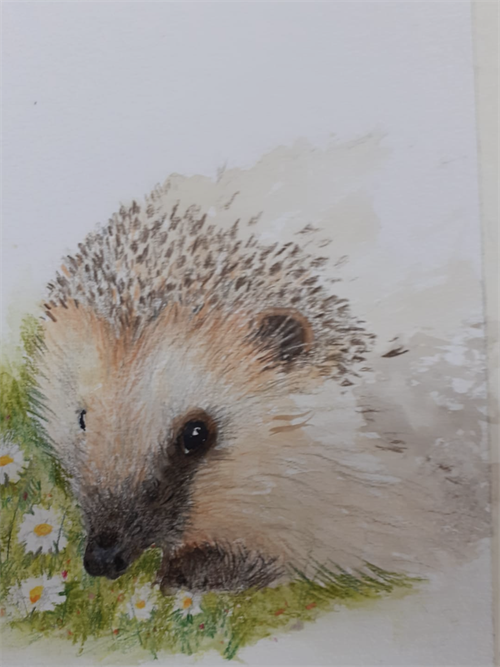
Watercolour Based Mixed Medium
20 Aug 2026 - 24 Aug 2026 12:00 - 11:00
Course Leader: Dawn Oliver
Course Date: Thursday 20 - Monday 24 August
Course Options:
Residential - £736 Non Residential - £488
Early Bird:
Residential - £699 Non Residential - £463 (EB Deadline: 20/05/26)
Course Timings: Course starts with lunch, ends after breakfast
Course Code: R1326

Ammerdown Cream Teas
23 Aug 2026 14:00 - 16:00
Course Leader: The Ammerdown Centre
Course Date: Sunday 23 August
Course Options: £6.50 - Cream Tea, unlimited hot drink £4.50 - Slice of Cake unlimited hot drink
Course Timings: 2-4pm
Course Code: D1626
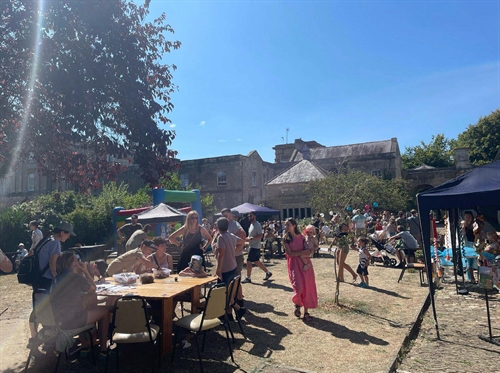
Family Fun Day
31 Aug 2026 13:00 - 16:00
Course Leader: The Ammerdown Centre
Course Date: Bank Holiday Monday 31st August
Course Options: FREE ENTRY
Course Timings: 1pm-4pm
Course Code: D1726
September

TLC for the Retired
03 Sep 2026 10:00 - 14:00
Course Leader: The Ammerdown Centre
Course Date: Thursday 3 September
Course Options: £20
Course Timings: 10am-2pm
Course Code: TLC0826

Refreshing Day for Carers
08 Sep 2026 10:00 - 15:00
Course Leader: The Ammerdown Centre
Course Date: Tuesday 8 September
Course Options: £20
Course Timings: 10am - 3pm
Course Code: C0426

The Hope of Nonviolence Online introductory session
16 Sep 2026 18:30 - 20:30
Course Leader: Carolyn Merry & Martina Hunt
Course Date: Wednesday 16 September
Course Options: £15 (Online introductory session)
Course Timings: 6:30pm-8:30pm
Course Code: D1826
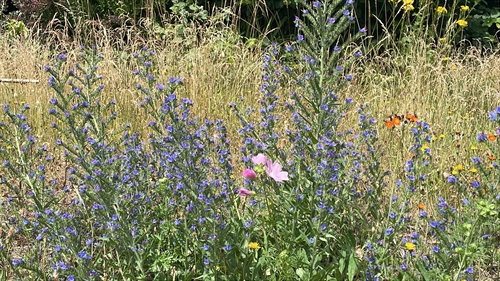
Extraordinary Women - Mindfulness & Presence with the Poems of Mary Oliver
26 Sep 2026 09:30 - 16:00
Course Leader: Sue Glanville
Course Date: Saturday 26 September
Course Options: Full Price - £70.00 Early Bird £65.00 (EB Deadline: 26/8/26 )
Course Timings: 9:30am for 10am - 4pm
Course Code: D1926
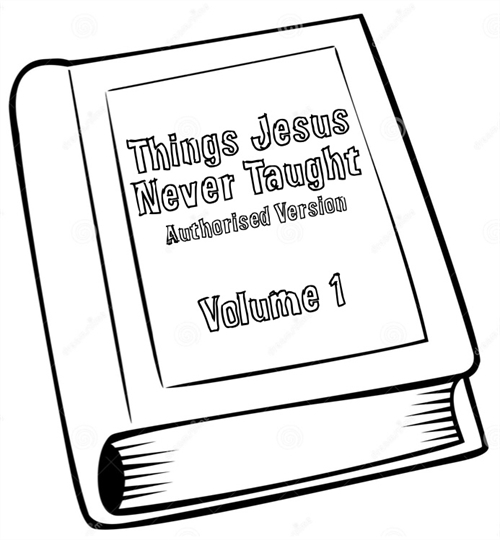
Things Jesus Never Taught
28 Sep 2026 - 30 Sep 2026 18:00 - 14:00
Course Leader: Dave Tomlinson
Course Date: Monday 28 - Wednesday 30 September
Course Options:
Residential - £395 Non Residential - £254
Early Bird:
Residential - £375 Non Residential - £241 (EB Deadline: 28/06/26)
Course Timings: Course starts 6pm, ends after lunch
Course Code: R1426
October
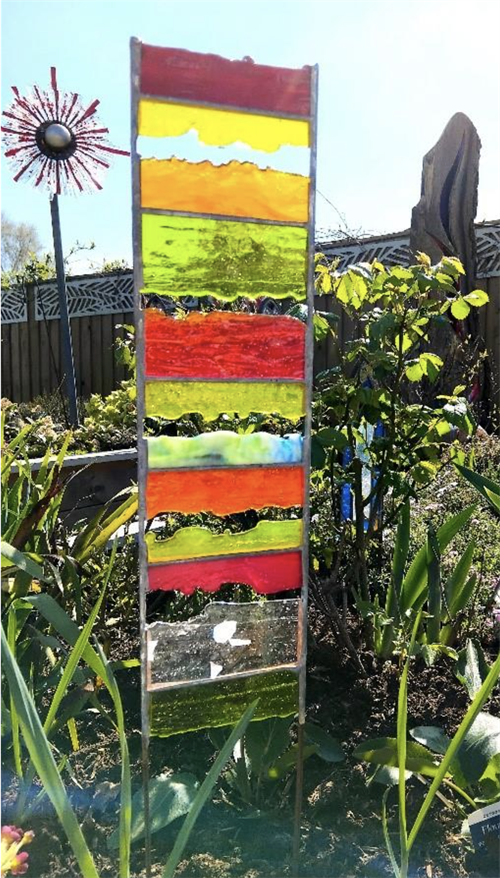
Stained Glass Garden Panels
01 Oct 2026 09:30 - 16:00
Course Leader: Tracey Quinn
Course Date: Thursday 1 October
Course Options: Full Price - £110 Early Bird £99 (EB Deadline: 01/09/26)
Course Timings: 9:30am for 10am - 4pm
Course Code: D2026

International Day of Peace & Nonviolence Pilgrimage from Wells to Ammerdown
02 Oct 2026
Course Leader: Carolyn Merry
Course Date: Friday 2 October
Course Options: To be confirmed.
Course Timings: To be confirmed.
Course Code: D2126
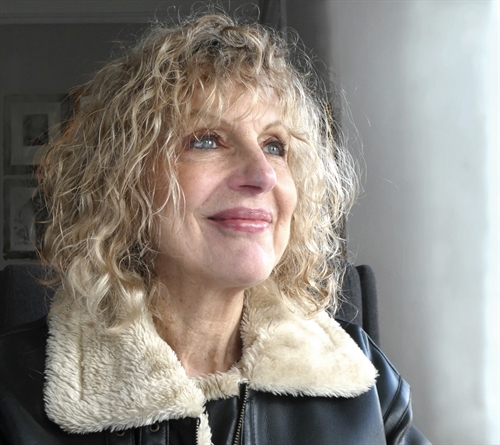
Memoir Writing
02 Oct 2026 - 04 Oct 2026 12:00 - 14:00
Course Leader: Rosie Jackson
Course Date: Friday 2 - Sunday 4 October
Course Options: Residential - £399 Non Residential - £272
Early Bird:
Residential - £379 Non Residential - £258 (EB Deadline:02/07/26)
Course Timings: Course starts and ends with lunch
Course Code: R1526
Glorious Colourful Calligraphy
05 Oct 2026 - 09 Oct 2026 12:00 - 14:00
Course Leader: Josie Brown
Course Date: Monday 5 - Friday 9 October
Course Options:
Residential - £757 Non Residential - £516
Early Bird:
Residential - £719 Non Residential - £490 (EB Deadline: 05/07/2026)
Course Timings: Course starts and ends with lunch
Course Code: R1626

Enneagram Part 2: Going Deeper with Sub-Types and Personal Transformation
05 Oct 2026 - 07 Oct 2026 18:00 - 15:00
Course Leader: Terry Wood
Course Date: Monday 5 - Wednesday 7 October
Course Options:
Residential - £395 Non Residential - £254
Early Bird:
Residential - £375 Non Residential - £241 (EB Deadline: 05/07/26)
Course Timings: Course starts at 6pm, ends at 3pm
Course Code: R1726
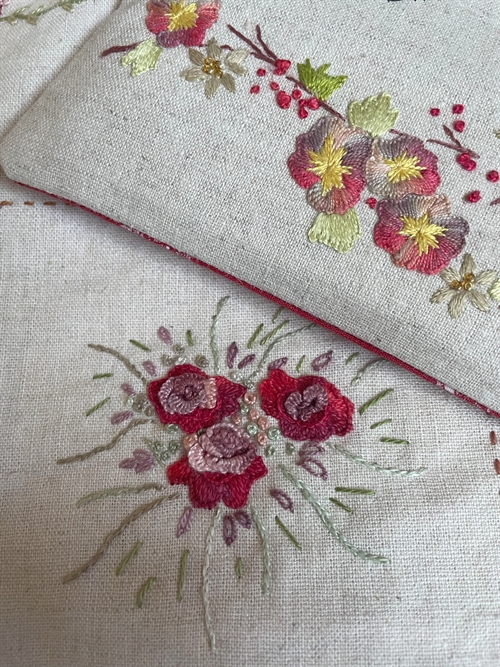
Redwork Embroidery
12 Oct 2026 - 15 Oct 2026 14:00 - 14:00
Course Leader: Annette Bolton
Course Date: Monday 12 - Thursday 15 October
Course Options:
Residential - £586 Non Residential - £374
Early Bird:
Residential - £556 Non Residential - £355 (EB Deadline: 12/07/26)
Course Timings: Course starts at 2pm, ends with lunch
Course Code: R0326

TLC for the Retired
15 Oct 2026 10:00 - 14:00
Course Leader: The Ammerdown Centre
Course Date: Thursday 15 October
Course Options: £20
Course Timings: 10am-2pm
Course Code: TLC0926

Spirit of the Inca North Module Accommodation 16-21 October
16 Oct 2026 - 21 Oct 2026 10:00 - 16:00
Accommodation for bookings prearranged with Spirit of the Inca.
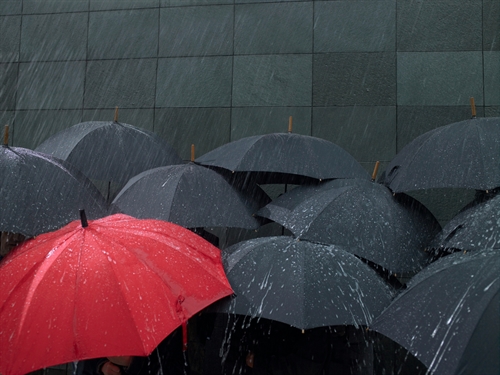
Living Well with Difference Quiet Day
17 Oct 2026 09:30 - 16:00
Course Leader: Rev Narinder Tegally and Carolyn Merry
Course Date: Saturday 17 October
Course Options: Full Price - £70.00 Early Bird £65.00 (EB Deadline:17/09/26 )
Course Timings: 9:30am for 10am - 4pm
Course Code: D2226

Refreshing Day for Carers
20 Oct 2026 10:00 - 15:00
Course Leader: The Ammerdown Centre
Course Date: Tuesday 20 October
Course Options: £20
Course Timings: 10am - 3pm
Course Code: C0526
November
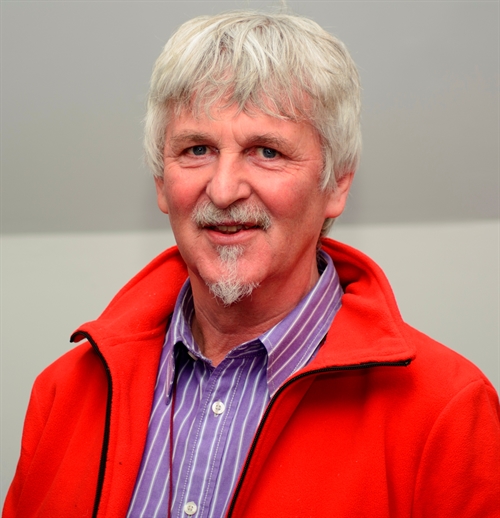
Ten Things They Never Told Me About the Bible
09 Nov 2026 - 11 Nov 2026 12:00 - 14:00
Course Leader: Rev John Bell
Course Date: Monday 9 - Thursday 12 November
Course Options:
Residential - £599 Non Residential - £409
Early Bird:
Residential - £569 Non Residential - £389 (EB Deadline: 09/08/26)
Course Timings: Course starts and ends with lunch
Course Code: R1826
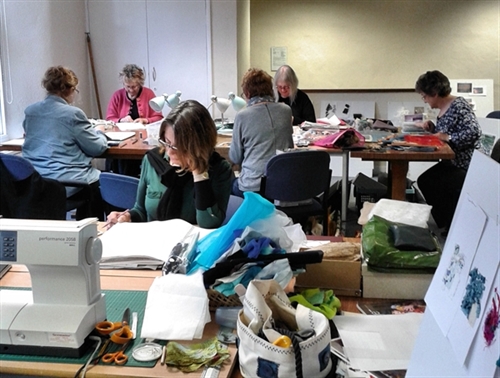
Stitched Textiles
13 Nov 2026 - 15 Nov 2026 16:30 - 14:00
Course Leader: Siân Martin
Course Date: Friday 13 - Sunday 15 November
Course Options:
Residential - £395 Non Residential - £254
Early Bird:
Residential - £375 Non Residential - £241 (EB Deadline: 13/08/26)
Course Timings: Course starts at 16:30, ends after lunch
Course Code: R1926

The Hope of Nonviolence Residential Course
13 Nov 2026 - 15 Nov 2026 10:00 - 16:00
Course Leader: Carolyn Merry & Martina Hunt
Course Date: Friday 13 - Sunday 15 November
Course Options:
Residential - £427 Non Residential - £293
Early Bird:
Residential - £407 Non Residential - £273 (EB Deadline: 17/08/26)
Course Timings: Please arrive for 10am, course ends at 4pm
Course Code: R2026

Refreshing Day for Carers
17 Nov 2026 10:00 - 15:00
Course Leader: The Ammerdown Centre
Course Date: Tuesday 17 November
Course Options: £20
Course Timings: 10am - 3pm
Course Code: C0626

TLC for the Retired
19 Nov 2026 10:00 - 14:00
Course Leader: The Ammerdown Centre
Course Date: Thursday 19 November
Course Options: £20
Course Timings: 10am-2pm
Course Code: TLC1026
December

The Hope of Nonviolence Online introductory session
02 Dec 2026 18:30 - 20:30
Course Leader: Carolyn Merry & Martina Hunt
Course Date: Wednesday 2 December
Course Options: £15 (Online introductory session)
Course Timings: 6:30pm-8:30pm
Course Code: D2326

Advent Retreat
04 Dec 2026 - 06 Dec 2026 14:00 - 14:00
Course Leader: Rev Narinder Tegally
Course Date: Friday 4 - Sunday 6 December
Course Options: Residential - £395 Non Residential - £254
Early Bird:
Residential - £375 Non Residential - £241 (EB Deadline: 04/08/2026)
Course Timings: Course starts at 2pm, ends after lunch
Course Code: R2126

Peace, Wreaths & Christmas Retreat Day
12 Dec 2026 09:30 - 16:00
Course Leader: Martina Hunt
Course Date: Saturday 12 December
Course Options: Full Price - £82.00 Early Bird £77.00 (EB Deadline: 12/11/26 )
Course Timings: 9:30am for 10am - 4pm
Course Code: D2426

Christmas Family Fun Day 2026
13 Dec 2026 14:00 - 16:00
Course Leader: The Ammerdown Centre
Course Date: Sunday 13 December
Course Timings: 2pm-4pm
Search by...
Date - 2026
Course Leaders
- Carolyn Merry (9)
- Martina Hunt (10)
- Ian & Gail Adams (2)
- Ash Barker (2)
- Tim Evans (2)
- Danielle Grover (2)
- Joanne Coomber (2)
- Terry Wood (3)
- Tracey Quinn (3)
- Sharon Wilkinson (2)
- Josie Brown (2)
- TLC for the Retired (11)
- Refreshing Day for Carers (5)
- Caroline Hudson (5)
- Dave Tomlinson (5)
- Dawn Oliver (3)
- Emma Went (3)
- Helen Lilley (3)
- John Bell (4)
- Judy Hoyler (3)
- Margaret Benifiel (3)
- Narinder Tegally (9)
- Rosie Jackson (3)
- Rupert Kaye (4)
- Sian Martin (5)
- Sue Glanville (6)
Subject
Don't fancy any of our courses?
Private stays at Ammerdown
Single
Bed & Breakfast - £67
Supper, Bed and Breakfast - £93
Full Board - £112
Double or twin
Bed & Breakfast - £107
Supper, Bed and Breakfast - £159
Full Board - £197
Call us on 01761 433709 to book.
Special Offers
Why not come before or stay on after your course and take advantage of our discounted rate? Bed and Breakfast £63, Supper Bed & Breakfast £89 or Full Board £108.

